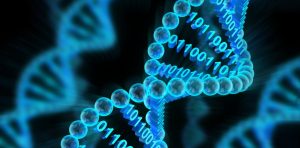A collaboration between Microsoft and industry leaders Illumina, Twist Bioscience, and Western Digital aims to forge the next step in the fusion between biology and technology.
Genetic code is what dictates how each living organism grows and develops. And now, scientists are looking to integrate digital data into DNA and store non information in the structure of its molecules. The alliance between Microsoft, Illumina, and Twist focuses on establishing technology and formatting protocols for the use of DNA as storage. The goal is to have standards for the eventual end-product that make it more applicable in the real world.
According to Twist co-founder and CEO, Emily Leproust, “DNA is an incredible molecule that, by its very nature, provides ultra-high-density storage for thousands of years… By joining with other technology leaders to develop a common framework for commercial implementation, we drive a shared vision to build this new market solution for digital storage.”
The scientists involved in the project have tested a completely automated end-to-end setup that can store and retrieve data from DNA, and they have saved and retrieved 1GB of information in DNA synthesized by Twist. The motivation stems from the possibility of more sustainable data storage using DNA and the goal is to expand collaboration to others in the industry and review initial commercialization of the technology.
DNA stores data by changing its binary sequence of zeros and ones to the four distinguished compounds that form our genome: A’s, C’s, T’s, and G’s. By changing the root code of the storage from a two-digit system to a four “digit” system, exponentially more data can be stored in the same area when compared to, say, a solid-state drive.
The partnership marks a massive human achievement and shines a light down a new path for industries like robotics, cybernetics, data processing, and big data marketing. Extremely high-level science is only possible with collaborations and alliances. Microsoft, Illumina, and Twist understand this, and have pooled their resources to further technological advancement.
As scientists continue to explore the storage potentials of human DNA, we can look forward to a future of seamless and compact data storage. The cloud is great but remains comparatively expensive to operate and slow to use. Local DNA storage would, once commercialized, mark a huge leap forward in data science.























